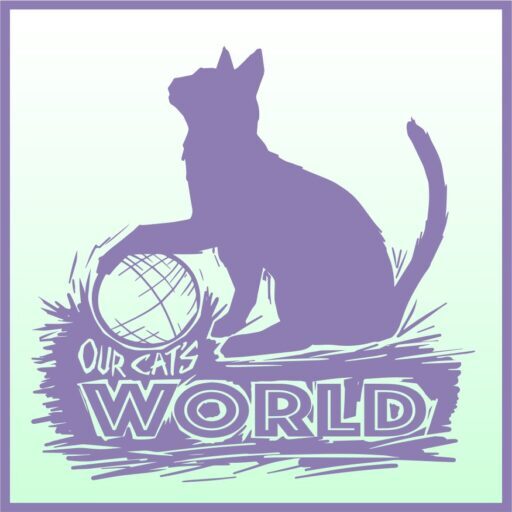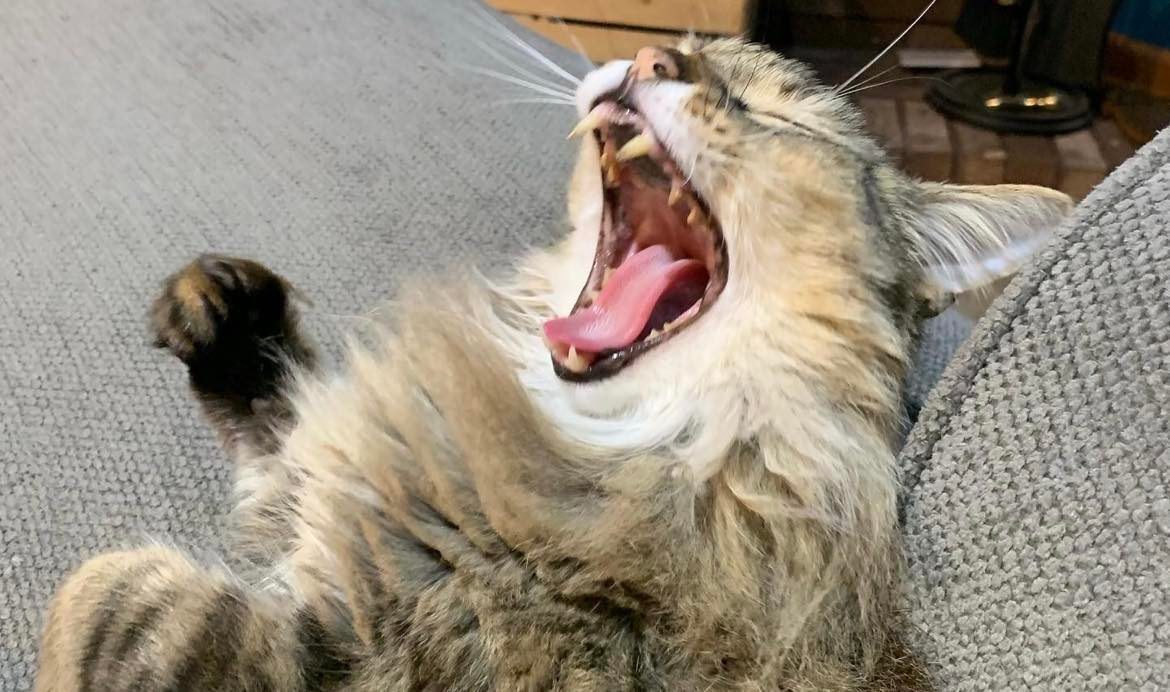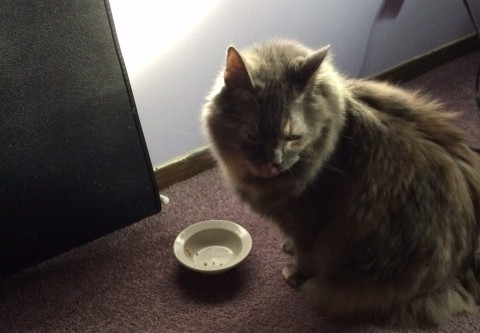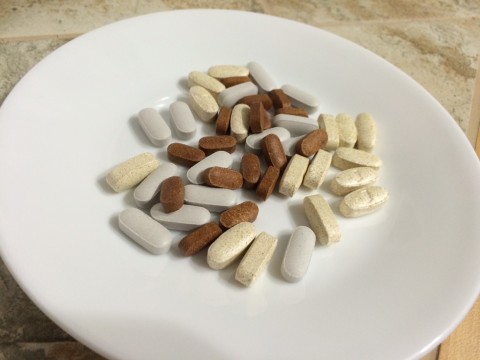This article is republished from my column on Examiner.com, with minor alterations
Can you safely put a cat on a vegan diet if you also use the right supplements? There have been cases of vegan owners feeding cats vegan diets, only to watch their cats start suffering fatal health problems. Because cats are obligate carnivores (meaning their bodies literally can’t use plant material to synthesize or absorb necessary nutrients), simply making them vegan doesn’t work, and is ultimately cruel. But, if you were to use supplements for the vitamins, minerals and amino acids they can’t get from plants, could you do it safely?
What nutrients to cats absolutely need?
Feeding cats vegan diets means they’ll become malnourished. Cats need nutrients such as taurine, niacin (vitamin B-3), cobalamin (vitamin B-12), retinol (vitamin A), vitamin D, arginine, lysine, and arachidonic acid, which are only found in very small amounts in plants. These nutrients do the following:
Taurine – This amino acid prevents your cat’s retinas from deteriorating over time. It also helps keep their heart strong; the muscle cells in the heart will weaken without sufficient taurine. Cats can only produce small amounts of taurine, meaning it must be included in their diet. Feeding cats vegan diets will harm them this way, because plants alone don’t contain sufficient taurine for your cat.
Niacin – Cats also can’t synthesize this B vitamin from tryptophan the way dogs and people can. Niacin contributes to gastrointestinal health, along with maintaining a healthy nervous system and healthy skin. While there are plants that contain niacin, and some contain enough for people, it’s generally not in sufficient quantities for cats. Feeding cats vegan diets will ensure a niacin deficiency, too.
Vitamin B12 – This vitamin also plays a role in maintaining gastrointestinal health, along with contributing heavily to healthy brain function. Cats suffering from B12 deficiency might have trouble with their balance, and may get easily confused.
Retinol – This is absolutely necessary for good eye health, and a strong immune system. Cats get their retinol from the livers of animals they eat, and it’s stored in their own livers, which means that it is possible to give them too much. Cats can’t produce retinol from beta-carotene, the way we can.
Vitamin D – Cats don’t synthesize vitamin D from sunlight like we do, so you don’t have to worry that your cat will start suffering from vitamin D deficiency if you keep him inside. Cats do need vitamin D for bone health, like we do, but need to get it from their diets, and plants are a very poor source. If you were to supplement with vitamin D, it has to be the right kind; cats need vitamin D3, not D2.
Arginine – This amino acid helps a cat’s liver flush out the toxins produced from food metabolism, such as ammonia. Even a species-appropriate diet will produce toxic by-products; that’s why a healthy liver is so essential to all animals, including cats and people. Getting enough arginine isn’t a problem when your cat’s eating a meat-based diet, but he can’t get enough of it from plants.
Lysine – Another amino acid that cats can’t synthesize on their own, lysine helps your cat synthesize proteins, and it also helps him maintain his weight. Without it, he could develop heart, skeletal, and muscle problems. While a few plants are fairly rich in lysine and sufficient for herbivores and omnivores, animal protein is a far better source for your cat, and especially for a growing kitten. You could cause all kinds of musculoskeletal problems feeding cats vegan diets.
Arachidonic Acid – This is an omega-6 fatty acid is necessary for skin and coat health, and it also helps maintain kidney and reproductive health. Arachidonic acid is not found in plants at all, but is necessary to your cat’s health. The only way to get it is to use supplements that come from an animal source.
There are also other nutrients cats need that are found in lower amounts in plants than they are in animals. So, the answer to the question, “Is feeding cats vegan diets possible, and safe, if you also use the right supplements?” is no, you can’t, because you can’t get arachidonic acid from plants.
Does feeding cats vegan diets ensure that they get these nutrients?
It’s also important to note that using so many supplements in your cat’s diet is risky, because it’s easy to overdose your cat, or to be too cautious and cause a deficiency anyway. Because cats are obligate carnivores, their bodies literally can’t get the nutrients they need from plant material. They just don’t produce the enzymes necessary for proper plant metabolism. This is why feeding cats vegan diets results in malnutrition, no matter how well you think you’re supplementing.
A lot of supplements you can buy contain vegetable cellulose, which can be very irritating for your cat’s digestive system. This, too, makes feeding cats vegan diets a very bad idea.
There are many, many vegans who understand that their pets’ dietary needs are different from ours, and feed their dogs and cats appropriately, or choose not to have carnivores for pets. That’s a fact, and there aren’t many vegans who do try to make their carnivorous pets vegan. However, every once in awhile, we do run across someone who either doesn’t understand the issue, or can’t deal with feeding animal-derived food to anyone or anything. So, if you’re vegan and can’t tolerate the thought of anything but feeding cats vegan diets, it’s best not to get a cat at all (or a dog). Get an herbivorous pet instead.




